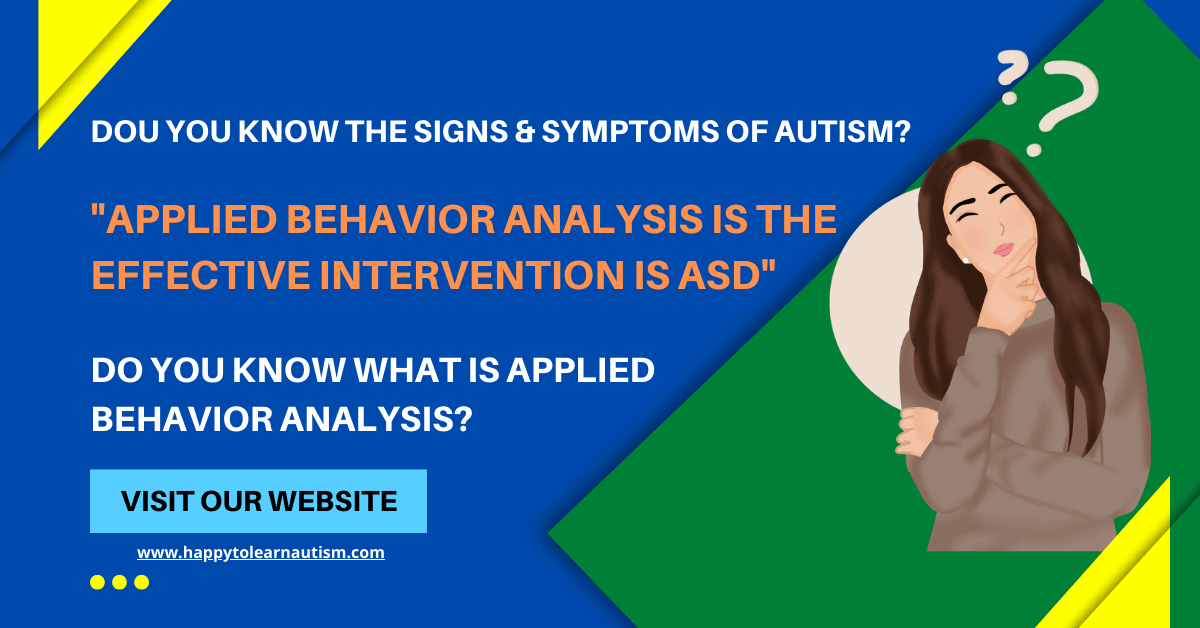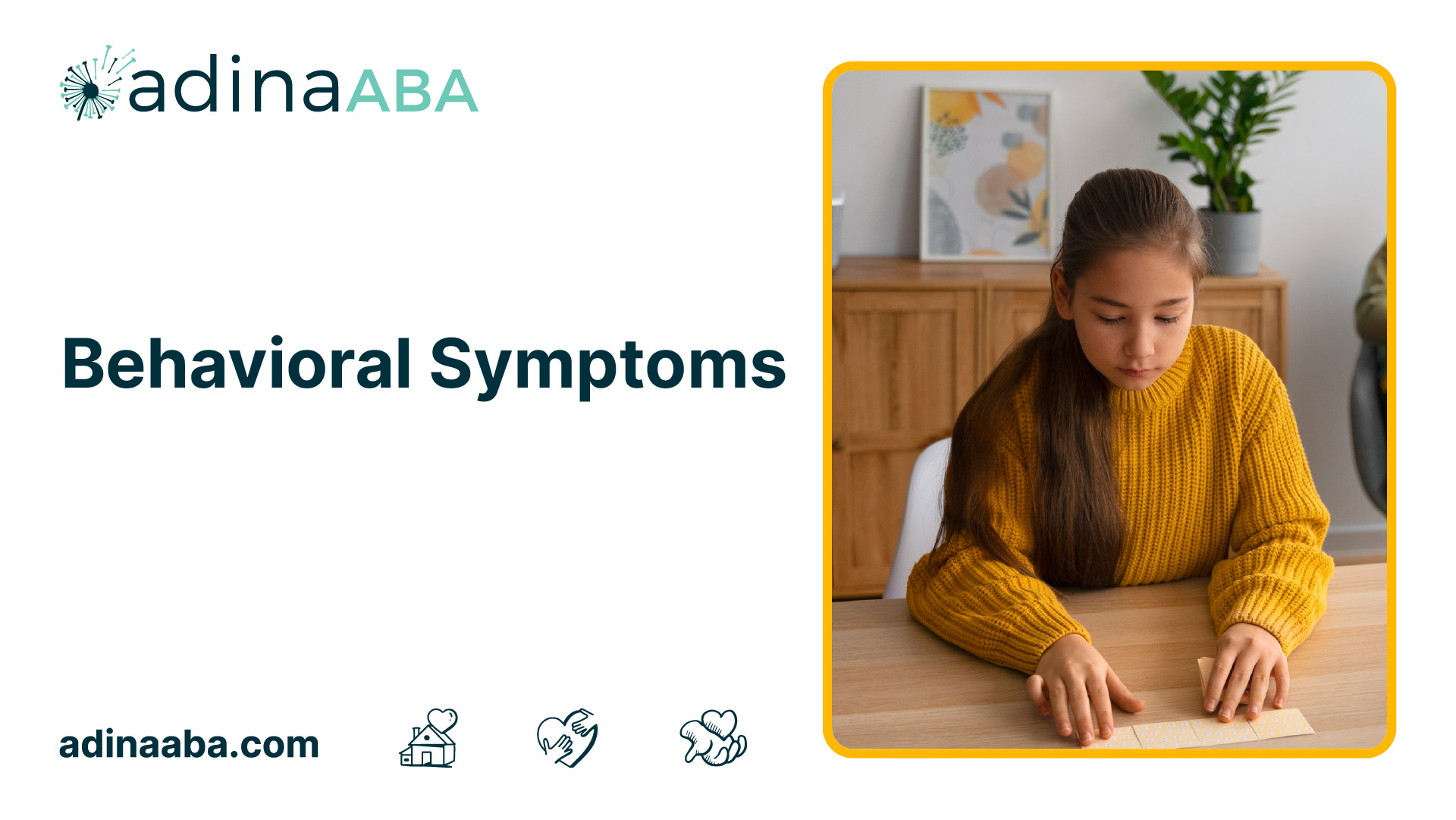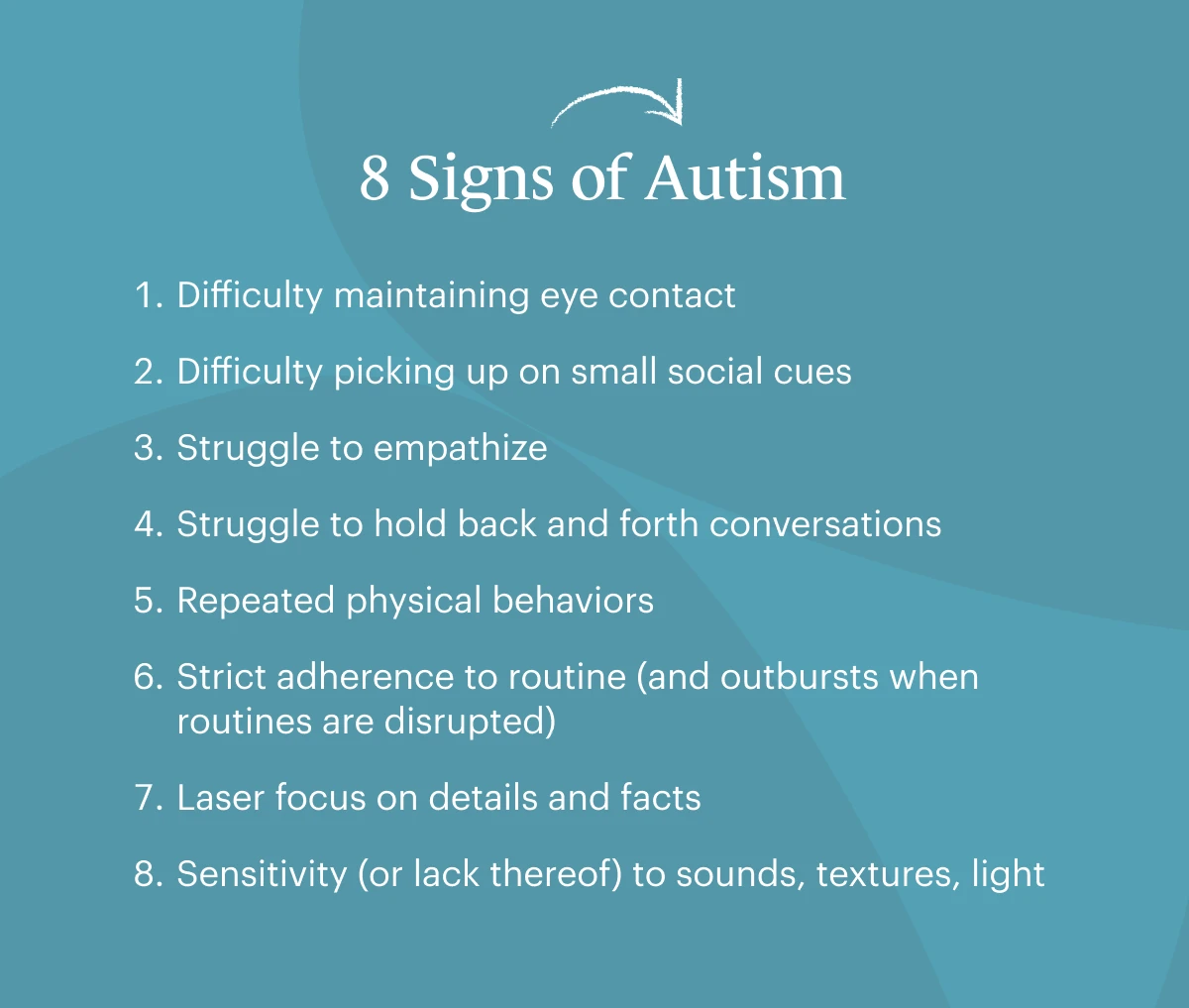How an Autism Therapist can improve your day-to-day structure for those managing ASD
How an Autism Therapist can improve your day-to-day structure for those managing ASD
Blog Article
Trick Symptoms And Signs to Acknowledge in Individuals With Behavior Autism
When you come across someone with behavior autism, acknowledging key indicators and signs is important. Additionally, sensory level of sensitivities can lead to overwhelming experiences.
Obstacles in Social Interactions
When you interact with somebody on the autism range, you might observe they battle with social cues and interaction. These obstacles can make social interactions really feel frustrating for them.
When they do involve, they could chat about their interests in terrific information without observing if you're interested. Recognizing these challenges can assist you come close to communications with compassion and perseverance, cultivating a more comfortable environment for both of you.
Difficulty With Verbal and Non-Verbal Communication

Acknowledging these indicators is vital, as it aids you better support and involve with people on the autism range. By comprehending their interaction obstacles, you can foster much more significant links and give a more helpful atmosphere.
Recurring Behaviors and Routines
Communication difficulties usually accompany various other indications of autism, such as repetitive habits and a solid choice for routines. You may notice that people with autism frequently involve in certain, repeated activities, like hand-flapping, shaking, or duplicating expressions. These actions can give convenience and a sense of control in an often overwhelming world.
When they comply with a structured routine,Regimens are equally vital; numerous people flourish. You may find that changes to these routines can result in considerable distress. If they have an everyday ritual of consuming morning meal at a particular time or following a particular path to school, any disturbance can trigger anxiety.
Identifying these patterns assists you understand their actions and supply support. By suiting their requirement for routine and permitting recurring actions, you can develop a much more comfortable setting that relieves their challenges.
Sensory Level Of Sensitivities

Common Sensory Triggers
Sensory level of sensitivities can substantially influence day-to-day live for people with autism, as specific stimuli often set off overwhelming responses. Usual sensory triggers include loud noises, intense lights, and strong smells. You could see that sudden audios, like alarm systems or sirens, trigger anxiousness or distress. Likewise, fluorescent illumination in shops can feel severe and uneasy. Textures can additionally play a considerable function; harsh textiles or certain food structures might be unbearable for you. Additionally, crowded places can overwhelm your detects, making it hard to relax or concentrate. Comprehending these triggers can assist you manage your atmosphere better. By understanding what influences you, you can take actions to decrease pain and enhance your everyday experiences.
Behavioral Responses Explained
Recognizing your behavior feedbacks to sensory level of sensitivities is necessary, as they frequently expose just how you engage with the world. You might additionally find on your own looking for specific sensory experiences, like deep stress or quiet atmospheres, to help ground on your own. Acknowledging these patterns assists you understand your needs better and can guide how you communicate them to others.
Coping Strategies Overview
Recognizing your sensory sensitivities is just the very first action; now it's time to check out coping methods that can aid you take care of those experiences effectively. Beginning by creating a sensory toolkit tailored to your requirements. This might include noise-canceling headphones, fidget playthings, or calming aromas. Establishing a structured routine can additionally provide predictability, reducing stress and anxiety around sensory overload. When you really feel overwhelmed, take breaks in a quiet room to regroup. Exercising mindfulness strategies such as deep breathing can help ground you in the minute. Furthermore, communicate your requirements with those around you; having encouraging good friends and household can make a big difference. Remember, finding what works ideal for you might take time, so be open and patient to trying brand-new strategies.
Limited Passions and Emphasis
While many individuals establish a wide variety of passions, those with autism usually demonstrate limited rate of interests and an intense concentrate on particular subjects. You could notice that somebody with autism can invest hours diving into their preferred topic, whether it's a specific kind of train, a details motion picture, or a scientific idea. This extreme focus isn't just a pastime; it can come to be a main part of their identification and social interactions.
You may discover pop over to this site that conversations revolve around these rate of interests, and they might battle to engage in more comprehensive topics. By understanding and recognizing these limited interests, you can promote a helpful atmosphere where they feel valued and understood, permitting for more purposeful links and interactions.
Emotional Regulation Troubles
People with autism often encounter obstacles in emotional guideline, which can be influenced by their extreme focus on particular passions. You could see that when a person is deeply taken part in a preferred activity, they can experience strong feelings, whether excitement or disappointment. When things do not go as intended., this intensity occasionally makes it difficult for them to shift gears or manage their sensations - Autism Behavioral Therapy.

Variability in Developmental Landmarks
When it comes to developing milestones, you'll discover that people with autism frequently reveal a variety of irregularity. Some may strike milestones promptly, while others could lag behind or progress at a different pace. For example, you may see a youngster master language skills yet have problem with social communications. This incongruity can be complex, as typical standards blog here do not constantly use.
It's vital to identify that each person's trip is one-of-a-kind. Some might create complicated abilities early, just to face challenges later. Others could take longer to attain standard landmarks but after that flourish in particular areas. Observing these patterns can assist you recognize their strengths and needs much better.
Frequently Asked Inquiries
How Is Autism Identified in Kid and Adults?
To identify autism in adults and youngsters, specialists review behavior, interaction skills, and social communications. If a private meets the requirements for autism spectrum problem., they often utilize standard examinations, interviews, and monitorings to identify.
Are There Different Kinds of Autism Range Disorders?
Yes, there are various types of autism spectrum conditions, consisting of Asperger's disorder and pervasive developing disorder-not or else specified. Each type differs in seriousness and characteristics, so understanding these distinctions can aid you far better support individuals with autism.
What Treatments Work for People With Autism?
When taking into consideration efficient treatments for people with autism, you'll locate alternatives like Applied Behavior Evaluation, speech therapy, and work treatment. Each approach can aid enhance communication, social skills, and day-to-day working tailored to specific requirements.
Can People With Autism Lead Independent Lives?
Yes, individuals with autism can lead independent lives. With the best support, abilities training, and sources, you can help them develop self-sufficiency, manage day-to-day tasks, and flourish in various settings, promoting their independence.
Exactly How Can Families Support Liked Ones With Autism?
You can support your loved ones with autism by producing a structured environment, urging their rate of interests, exercising patience, fostering interaction, and promoting social skills. Celebrate their accomplishments, regardless of how tiny, and build a helpful area.
Although lots of people on the autism spectrum can comprehend and use language, they typically deal with significant difficulties with both verbal and non-verbal interaction. Acknowledging these signs is essential, as it aids you better support and engage with people on the autism range. You might observe that people with autism typically engage in specific, repetitive activities, like hand-flapping, shaking, or repeating expressions.Sensory sensitivities can substantially affect day-to-day life for people with autism, as particular stimuli often trigger overwhelming reactions.When it comes to developing milestones, you'll see that people with autism frequently show a wide range of variability.
Report this page